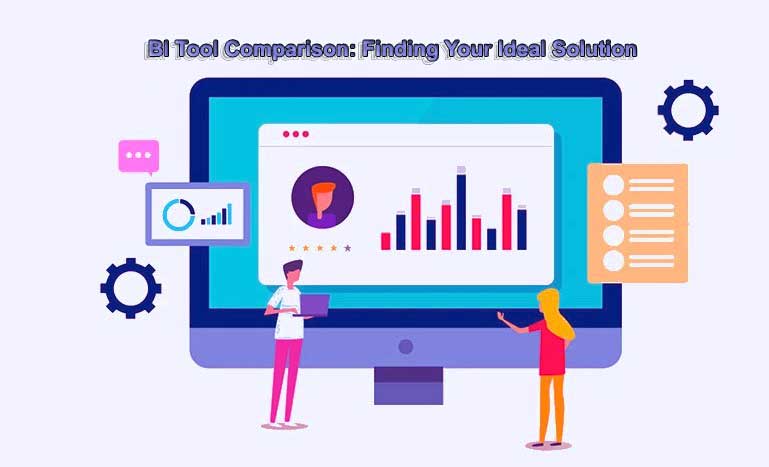BI Tool Comparison: Finding Your Ideal Solution

Business intelligence (BI) tools are software applications that help businesses collect, analyze, and visualize data to extract meaningful insights.
Use of BI Tools
BI tools can be used to answer a variety of business questions, such as:
What are my best-selling products?
Which customers are most likely to churn?
Where should I open my next store?
How can I improve my marketing campaign?
BI tools can help businesses make better decisions, increase efficiency and reduce costs.
Different BI tools on the market
There are many different BI tools on the market, each with its own strengths and weaknesses. The following is a comparison of some of the most popular BI tools:
|
Tool |
Pros |
Cons |
| Tableau | Easy to use, powerful data visualization capabilities | Can be expensive, not as scalable as some other tools |
| Power BI | Cloud-based, affordable, wide range of features | Not as user-friendly as some other tools, can be slow with large datasets |
| Qlik Sense | Fast performance, in-memory analytics capabilities | Can be complex to use, not as scalable as some other tools |
| Looker | Cloud-based, easy to use, good for data exploration | Can be expensive, not as good for complex analysis as some other tools |
| MicroStrategy | Scalable, wide range of features | Can be complex to use, expensive |
When selecting a BI tool
When selecting a BI tool, it is important to consider your specific needs and requirements. Some factors to consider include:
Your budget: BI tools can cost anywhere from a few hundred dollars to tens of thousands of dollars.
Your technical skills: Some BI tools are easier to use than others.
If you have limited technical skills, you may want to choose a BI tool designed for non-technical users.
The size and complexity of your data: If you have a large and complex data set, you need a BI tool that can handle it.
Your deployment preferences: Do you want an on-premises BI tool or a cloud-based BI tool?
Once you have considered all of these factors, you can start to narrow down your choices. It’s also a good idea to read reviews of various BI tools and try a few different ones before you make a purchase.
To find the ideal BI tool
Here are some additional tips for finding the ideal BI tool for your business:
Identify your specific needs: What do you want to use BI for? What types of insights do you need to extract?
Consider your budget and resources: How much can you afford to spend on BI tools? How much time and resources do you have to implement and use BI tools?
Evaluate different BI tools: Read reviews, compare features, and try different tools before you make a purchase.
Get trained: Once you choose a BI tool, get trained on how to use it. This will help you get the most out of this tool.
By following these tips, you can find the ideal BI tool for your business and start reaping the benefits of BI.